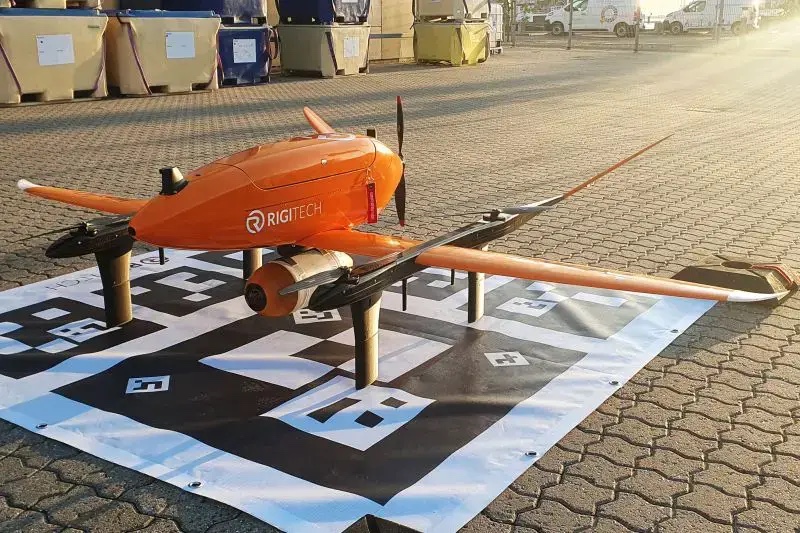
Up-and-coming drone delivery company RigiTech has followed breakthrough successes in France and its domestic market of Switzerland with a new achievement in Denmark, developing a specialized payload lowering system that enables fast and precise transportation of parts to offshore wind farms.
The project in Denmark involved Lausanne-based RigiTech partnering with local autonomous systems operator Holo, and global transport and logistics company DSV. Using a specialized payload lowering mechanism that the Swiss company devised, the trio went to work testing drone deliveries of replacement parts to wind farm platforms operated by energy company Ørsted.
Read: RigiTech starts unprecedented BVLOS drone delivery in France
The result, they report, was a tightly synchronized network assuring drone delivery of required material to windfarm platforms located some 30 kilometers off Denmark’s coast in just 30 minutes – far faster than usual boat transport – which enabled valuable same-day repairs.
That trial run of RigiTech’s drone payload delivery innovation promises more efficient maintenance operations of the 111 turbines making up Ørsted’s Anholt wind farm. It also extends successful beyond visual line of sight (BVLOS) performance of the Swiss company’s Eiger UAV to Demark, following the launches of service using the craft in France and its home market.
To do so, Holo operated RigiTech’s delivery drones on BVLOS flights from Copenhagen – on an opposite coast of Denmark – navigating their takeoff from a DSV warehouse storing replacement parts.
From there the craft was piloted to a platform amid the Anholt wind farm site, where the required component was lowered to a precise spot on the platform, allowing the UAV to complete its mission without needing to land before returning home.
Read: RigiTech links with Spright in global medical drone delivery project
In addition to providing far faster response and delivery time to Ørsted wind farm turbines, RigiTech says its battery-powered drone deliveries eliminated the 500 liters of diesel fuel emissions produced by habitual boat transport.
“This project started with a simple customer challenge: How do we get parts directly to a technician inside a wind turbine?” says Adam Klaptocz, CEO of RigiTech. “The solution was (anything) but simple, and pushed us to develop multiple cutting-edge technologies, including AI-based flight planning algorithms, precision navigation in high-wind environments, computer vision, and sensor fusion algorithms. The results speak for themselves; spare parts delivered with cm-level precision, fully autonomously, every time. Available today.”
FTC: We use income earning auto affiliate links. More.




Comments